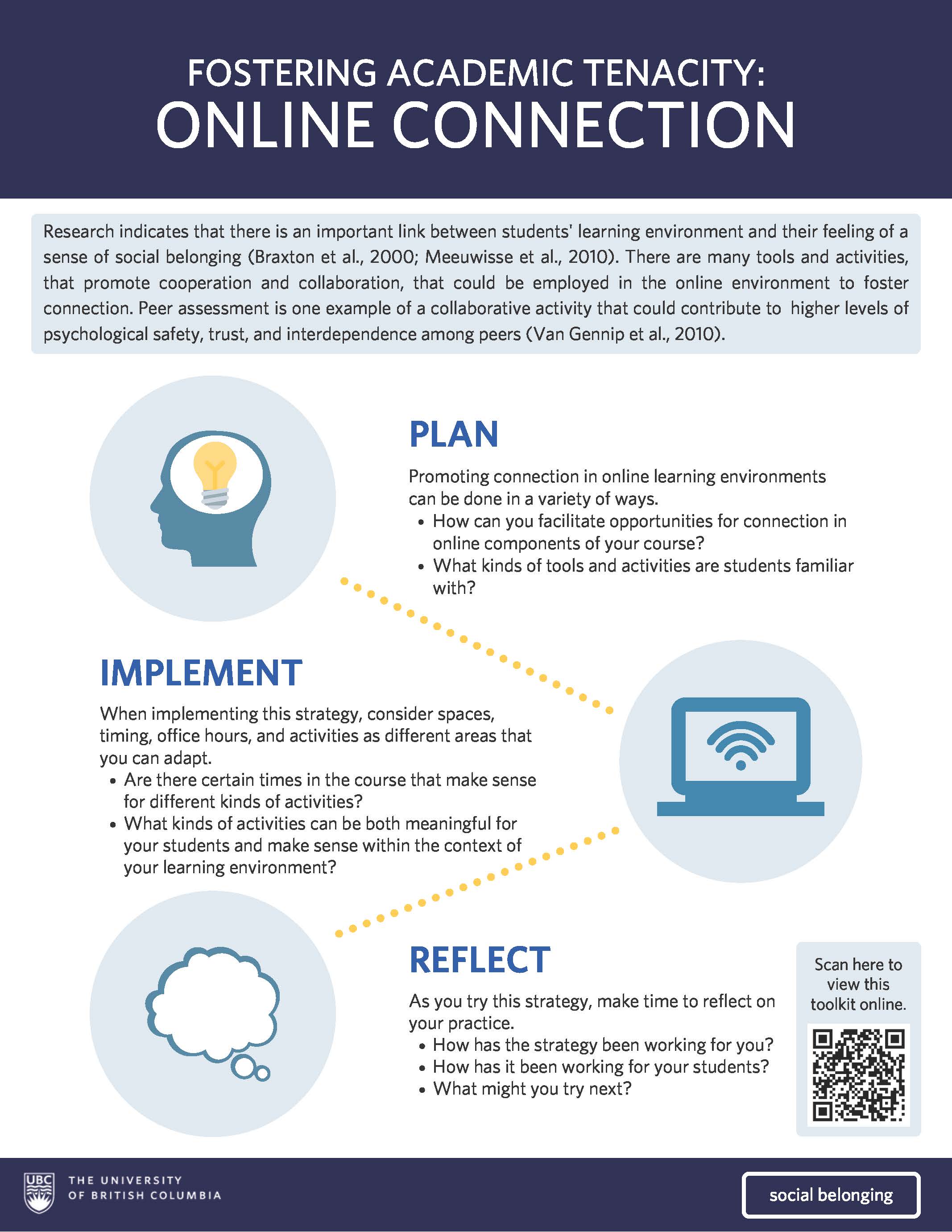Research indicates that there is an important link between students’ learning environment and their feeling of a sense of social belonging during their post-secondary education (Braxton, Milem & Sullivan, 2000; Meeuwisse, Severiens, & Born, 2010). For online components of courses many instructors rely on Canvas, the current learning management system (LMS) at UBC. In a recent white paper, Canvas emphasized the importance of social-connectedness in online spaces and highlighted ways to leverage the LMS to support connection (Irvine & Stein, 2015).
Cooperative learning environments may positively contribute to students’ sense of belonging (Braxton, Milem & Sullivan, 2000; Meeuwisse, Severiens, & Born, 2010).There are many tools and activities that promote cooperation and collaboration that could be employed in the online environment to foster connection. Peer assessment has become an integral part of active and collaborative learning environments; peer assessment allows students the opportunity to actively take part in shaping their own learning as well as help their classmates improve their learning (Cassidy, Richard & Bailey, Daniel, 2018; Van Gennip, Segers, & Tillema, 2010).
Moreover, research indicates that peer assessment as a collaborative learning intervention contributes to higher levels of psychological safety, trust, and interdependence among peers (Van Gennip, Segers, & Tillema, 2010).
Promising Practice
Selected References and Measures
Go Further
Online Connection Reflection & Planning Tool

Recommended Citation
Health Promotion & Education, UBC. (2020). Fostering academic tenacity: Online Connection. Retrieved from: wellbeing.ubc.ca/wble
We gratefully acknowledge the financial support for this project provided by UBC Vancouver students via the Teaching and Learning Enhancement Fund.